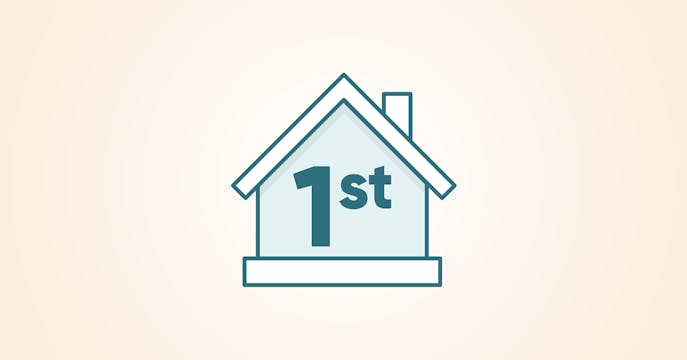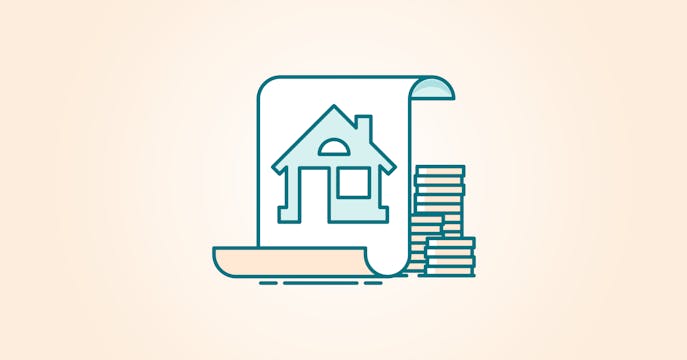Want insight and tips to help with your home-buying process from beginning to end? Download our simple, yet comprehensive First Time Home Buyer's Guide here — it's free!
Lowest Mortgage Rate in Canada. Starting from 2.49%
Mortgage Down Payments
Want to buy a home? Well then, you need a down payment.
Sounds simple — but coming up with the funds to buy a house can be a challenge. And the size of your down payment can affect your mortgage costs and rate. Let's take a look.
Updated December 15, 2024
Your down payment strategy starts here.
When going to buy your first home or next home, or a vacation or rental property, lenders expect you to put some of your own money towards your purchase called a down payment.
Your down payment secures at least a small portion of equity in your home or property. It also assures the lender of your financial commitment towards such a large purchase and the resulting mortgage loan.
Ahead of your pre-approval process and house-hunting excitement, we can help you home-in on how much you'll need to put down (or save), what sources work for gathering your amount — and other details you need to know.
In Canada, you can make a down payment of as little as 5% (depending on the purchase price).
A minimum of 5% down can help you enter the real estate market and become a homeowner (see below for purchase-price limits).
Any down payment between 5% and 20% of the home price is called a high-ratio mortgage, meaning your mortgage will require mortgage default insurance to protect the lender.
This type of insurance is provided by the (most commonly used) Crown corporation, Canada Mortgage and Housing Corporation (CMHC), or private providers Sagen and Canada Guaranty. It has added premiums relative to the size of your mortgage (after the down payment is deducted from the home price).
Here's the down payment size you'll need based on the home's purchase price.
- $500K or less – 5% of the purchase price
- $500K to $1,499,999 – 5% of the first $500K and then 10% for the amount over that
- $1.5M or more – you'll need 20% of the total purchase price (considered a conventional mortgage)
Where can your down payment come from?
Lenders will look at where your down payment comes from and how long you've had access to it. For the most part, a lender wants your down payment to come from your own funds, but exceptions exist (see below).
| Lenders will accept: | Lenders won’t accept: | |
|---|---|---|
| Savings or chequing account | Gift from non-relative | |
| Trading or investment accounts | Funds from a sanctioned country | |
| Gift from close family member | Cryptocurrencies, such as Bitcoin | |
| Sale of previous home or asset | Cash or funds that cannot be traced | |
| Equity borrowed from other property | Any gifted funds on a rental property |
True North Tip: Lenders need to see a 90-day history of your down payment money. Keep your funds in a single savings account and try not to transfer within that time frame.
What are some ways to help with a down payment?
- Are you a first-time home buyer? There are government programs and rebates that offer incentives to help you save up (or save more), or help free up some cash to spend on other things, like closing costs.
- If you've already been informed that your down payment is insufficient, make it a priority to find ways to save money, such as foregoing a new car or a vacation trip.
- Are you buying a newly built home? The government GST rebate may help free up funds for a larger down payment.
- You may also be able to borrow your down payment from a secured line of credit, or it can be gifted from a family member (restrictions may apply; see above table).
- Have you thought of going in with others? Co-ownership, multigenerational mortgages, and rent-to-own strategies (but beware of limits) may help you gather down payment resources.
How does an 'insured' mortgage impact your rate?
Depending on the lender, a high ratio (insured) mortgage means you can often access lower rates compared to a conventional mortgage (20% or more down). You'll still need to qualify for your loan amount and rate through the federal mortgage stress test (which determines your ability to still afford your payments if rates go up). We can get your best rates, regardless of your down payment amount. But overall, the more money you can save and put down on your purchase, the lower your mortgage and payments will be.
Can a conventional mortgage save you more?
If you supply a down payment of 20% or more for any home price, it's considered to be a conventional mortgage, which doesn't legally require mortgage default insurance. That means that the bank carries more capital in order to provide your mortgage, which can sometimes mean slightly higher rates.
But overall, the more you put down, the lower your mortgage amount, and the more you'll save through lower monthly payments and the overall interest cost of your mortgage.
Plus, you'll build equity in your home faster and likely have access to better product options.
A larger down payment can help your credit situation
A down payment becomes increasingly important if your credit history is less than stellar. Some lenders may overlook past credit blemishes, or not insist on verifying income or other financial status, if you're able to provide 35% to 40% of the purchase price for your down payment.
Don't get caught! Closing costs are over and above your down payment.
When saving for your down payment, make sure to budget for extra expenses associated with buying your home, including 'Closing Costs' that are due before your mortgage closes (and you get possession of your home). If you have enough for a down payment, but can't cover the closing costs, your home purchase may be in jeopardy.
When do you actually need to provide the down-payment money?
Your down payment will need to be verified at the time of your application, but you won’t need to provide the funds from your account until your signing appointment with your lawyer (to finalize your home purchase).
Not sure about your down payment source? Talk to us, we can help!
Does your purchase-offer deposit come from your down payment?
Yes, you'll need to provide a deposit when you an offer for a home — and it's considered to be part of your down payment. For example, if your full down payment will be $50K and you’ve given a deposit of $10K, you’ll provide the additional $40K at the time of signing.
Get down-home advice to save the most.
From questions about your down payment, to walking through your own front door — you'll get great advice on your down payment questions. And, we'll get you the right mortgage fit, with your best rate to save you a pile of cash.
Our highly trained True North Mortgage brokers can help you coast-to-coast online, over the phone, through our chatbot or stop by a store near you.
Get the best advice for your better mortgage.
What do you need? We can help

First-Time Home Buyers
Get the best start and save a pile of cash with our mortgage experts.

Pre-Qualify in Minutes
Know before you go (house hunting, that is). Get pre-approved fast, hold your best rate.

GST Rebate on New Homes: How It Works
As a first-time buyer for a newly built home, a 100% GST rebate may help you save.

